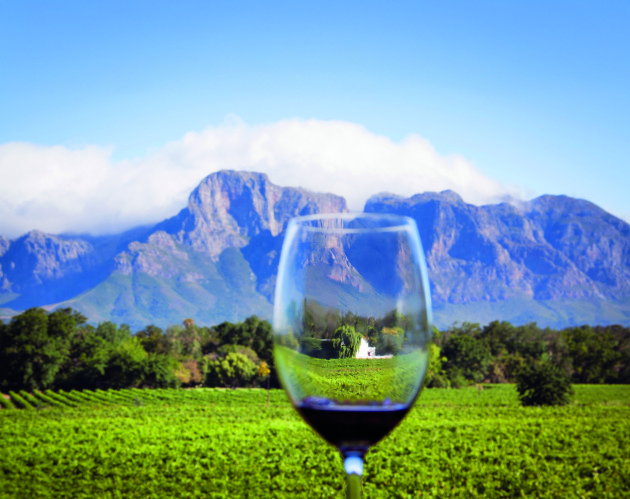
Tim Atkin MW: The Cape deserves our respect
There are a few grapes still out there on the vines, but the verdict on the quality of the 2025 crop was harvested some time ago. After a run of challenging years, South Africa is completing one of its greatest ever vintages. “Seriously promising” is how Eben Sadie, the country’s most famous winemaker, describes it.
Everyone’s happy about what’s being processed in their cellars. But there’s also a countervailing sense of unease about the future of the wine industry. I chatted to a group of producers over dinner recently and the conversation was the only sobering thing about the evening. Donald Trump had just imposed a 31% tariff on South African wines, one of the highest rates in the world. The news could have been worse – the US is “merely” the Cape’s fourth-biggest export market – but that’s not the only thing that is furrowing people’s brows. “The wine industry is in a real dump,” one of them told me.
Things are no better in the UK, alas, the place that imports the most South African wine. “The UK used to be a reference market,” says Alex Dale of Radford Dale, “and it’s become a pain in the arse.” Our ludicrous new duty regime is partly to blame. But so is the enduringly cheap image of basic South African wines.
To keep Cape Chenin Blanc at what they deem to be “competitive” prices, two British supermarkets have asked producers to reduce the alcohol level of their wines. This involves manipulation – the use of spinning cones, the addition of gum Arabic, water or sugar – as well as extra cost. “We’re being asked to spend money to make a product that’s less good,” says Pieter Carstens of Leeuwenkuil Family Vineyards, “just so that retailers can avoid paying tax.”
Another thing that upsets producers is the stipulation that they be sustainable and/or Fairtrade certified and still hit bargain-basement price points. And here, it’s not just the UK that is at fault. Someone showed me a tender from one of the Scandinavian monopolies, containing an exacting set of ethical demands. “All that for €2 a bottle,” he commented.
Thirty-one years after the return of democracy, South Africa remains an unequal society. You only have to drive from the boutiques and wine bars of Stellenbosch to the Third World poverty of Kayamandi a few minutes’ away to recognise that transformation remains a slow process. Across South Africa, whites make up 7.3% of the population but own over half of the land. White unemployment is 7%; the figure for black South Africans is over 30%.
↓
Community investment
Most wine producers are aware of these facts. Acutely so, I’d say. What’s more, they are genuinely trying to improve a country they love. I’ve lost count of the number of wineries that have invested in their communities, often without fanfare or an eye on media coverage. Rijk Melck of Muratie told me privately about the daughter of two of his farmworkers. They were illiterate; she is now a doctor. “We made that possible,” he said.
The South African wine industry wants to be part of a better and more equitable society. And it’s happening, albeit more slowly than is ideal. There are more black winemakers in leading jobs than ever before. Social sustainability – every bit as important as environmental sustainability – is something to which most wineries aspire.
But such things cost money. “How do I pay my workers a fair wage when I’m constantly being asked to drop my prices?” asked one supplier. “The demands of certain retailers don’t just affect me and my business. They affect a whole farming community of 250 people and their families. We’re one of the few successful transformation projects still standing after 20 years of land reform in the Western Cape. But I’m about to lose 20% of my business.”
The person in question has decided to say no. No to the suggestion that he concoct a different, less-good product to hit a price point. No to the suggestion that, if he wishes to produce the wine he has always made, he funds the UK duty difference himself. It’s a brave stance. And one we should applaud. The future of the South African wine industry is not just the producers’ responsibility. It’s ours too – importers, retailers, journalists and consumers. We can all make a difference by paying more for basic Cape wines. The truth is ineluctable, if uncomfortable. Without profitability, sustainability, never mind transformation, is impossible.






